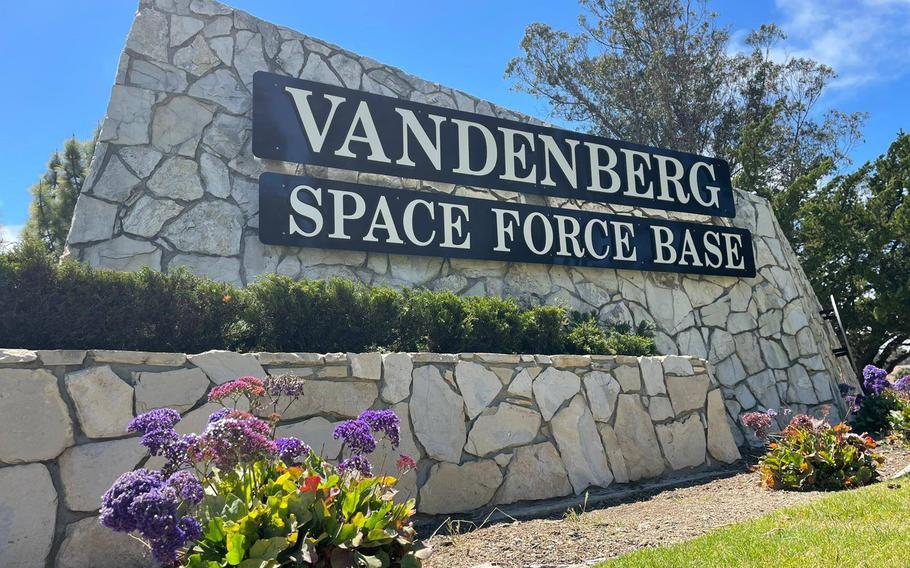
The Chinese citizen who admitted to operating a drone in Vandenberg Space Force Base airspace was sentenced to four months in federal prison and one year of supervised released, federal court documents show. (Vandenberg Space Force Base)
(Tribune News Service) — The Chinese citizen who admitted to operating a drone in Vandenberg Space Force Base airspace was sentenced to four months in federal prison and one year of supervised released, federal court documents show.
Yinpiao Zhou, 39, pleaded guilty to one misdemeanor count of violation of National Defense Airspace on March 10, court records show.
According to his plea agreement, Zhou, a Chinese citizen and lawful permanent resident of the United States, flew his drone into the National Defense Airspace around the Vandenberg Space Force Base in Lompoc on Nov. 30.
The space where Zhou flew his drone was designated by the Federal Aviation Administration as necessary in the interest of national defense, meaning flights of civil aircrafts that the FAA cannot identify are prohibited. That includes drones.
Zhou had returned from a visit in China in February, U.S. Attorney’s Officials said at the time of Zhou’s December arrest. He was taken into custody at San Francisco International Airport on Dec. 10 prior to boarding a flight to China, the agency said.
Zhou was sentenced to time-served in federal prison, which was four months, and one year of supervised release, records show.
He also was required to pay a $200 fine and a $25 special assessment fee.
Ciaran McEvoy, spokesperson for the U.S. Attorney’s Office, said Zhou was in custody in Mentropolitan Detention Center in Los Angeles as of Monday morning but expected to be released soon.
Man downloaded software to allow drone to enter prohibited areas, documents say
On Nov. 30, Zhou traveled to a park near the Space Force base and launched his drone, court documents said.
He flew the drone 1.8 miles south so that it was over the Space Force base. Court documents said Zhou’s drone took several photographs of the base as it flew overhead.
Once base security personnel detected the drone inside the restricted airspace, they traveled to the park and questioned Zhou and another individual he was with, court documents said. Zhou initially denied seeing any drone pilots but then admitted to having the drone inside his jacket.
Zhou admitted he knew he could not fly his drone over the Space Force base and had downloaded software that allowed him to operate his drone in areas he would otherwise be prohibited from flying in, the document said.
While Zhou is a legal permanent resident, it is unclear how the conviction may affect his immigration status at this time.
According to the plea agreement, the conviction could be grounds for deportation, denial of citizenship and/or denial of entering the United States in the future.
© 2025 The Tribune (San Luis Obispo, Calif.).
Visit www.sanluisobispo.com.
Distributed by Tribune Content Agency, LLC.